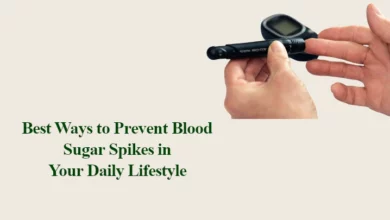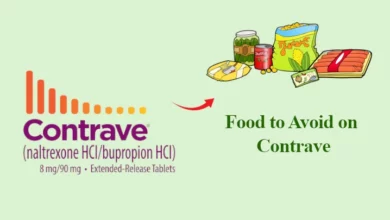Strategies to Effectively Deal With Postpartum Depression

If you’re a new mom, the last thing you need is to be stressed out by postpartum depression. However, it’s essential to understand that this condition can happen. Postpartum depression is a severe condition that affects as many as one in seven women.
It’s not something that you should ignore or blow off. Because if left untreated, it can lead to suicide, the third leading cause of death for women in the United States.
Luckily there are ways to deal with it before it gets too bad. If you feel like you’re slipping into post-partum depression and don’t know how to get out of it, here are some strategies for effectively dealing with this issue:
1. Find Someone to Talk to
As per the National Alliance on Mental Illness, the average time between starting mental illness symptoms and initiating therapy is 11 years. If you suffer from postpartum depression, you must take action before it worsens. It will be too late if you wait 11 years to obtain therapy.
There are many ways to find someone to talk to about your struggles with depression. The easiest way is using a search engine such as Google or Bing. Type in “find a therapist near me.” There should be several results where you can look up therapists who specialize in different areas, like postpartum depression.
Another good way would be talking with partners, friends, or family members. They may not understand your pain, but they may offer emotional support or others, such as helping with chores.
Another option would be joining support groups where women share their experiences openly so they can better relate to one another’s feelings during times of struggle like this.
2. Take Meds
Several medications are available to help treat postpartum depression, including SSRIs (selective serotonin reuptake inhibitors), SNRIs (serotonin/norepinephrine reuptake inhibitors), and mood stabilizers. These can reduce feelings of sadness and anxiety, as well as prevent future episodes.
Before taking any meds, consult with your healthcare provider. Avoid the consumption of unprescribed meditations, as they can cause side effects and may prove harmful to you.
Different types of medication may be prescribed for your specific needs. Working with your doctor to find the best option for you based on your symptoms and medical history is essential.
Some potential side effects include sleepiness or dizziness, weight gain or loss, and sexual dysfunction. If you experience any adverse side effects while taking antidepressants, contact your healthcare provider immediately so they can adjust your dosage accordingly or switch medications if necessary.
3. Take Rest
One of the most effective strategies to deal with postpartum depression is taking rest. According to The National Sleep Foundation, individuals between 18 and 64 require 7-9 hours of sleep every night. However, since you may be sleep deprived as a new mother suffering from depression, it’s time to address this issue.
Resting when you feel tired or stressed can help your body recover faster and make it easier for you to deal with stress. Resting also helps improve your mood, which can lead to better sleep at night. It helps reduce anxiety about caring for your baby or other issues that may bother you in the daytime.
4. Eat Healthy and Stay Hydrated
It’s important to eat a healthy diet. This will help you keep your energy up and stay hydrated. You can also get vitamin D from sunshine, but it’s very easy to get enough in your diet by eating foods like eggs or sardines or taking a supplement.
Eating small meals throughout the day is better than large meals because it helps prevent low blood sugar (hypoglycemia).
It’s best for pregnant or breastfeeding women to avoid caffeine because it can affect their baby’s development. A daily caffeine limit of 300–500 milligrams may be a healthy level of consumption for most moms but not more than that.
5. Engage in Physical Activities
Over half of the women in the UK did no intense exercise in the previous 12 months. This is a severe problem because exercise is necessary, especially for new mothers and PPD sufferers.
Exercise has been proven to release endorphins and get the blood flowing, which can help you sleep better and feel better about yourself. It can also help with stress, anxiety, and depression by releasing those same endorphins that make you feel good when you exercise.
6. Join Support Groups
Several support groups are available to women with postpartum depression. Support groups can be helpful for many reasons, including connecting you with others who have experienced similar struggles, providing information about treatment options and resources, increasing awareness about PPD in your community, and supporting you during difficult times.
To find support groups near you:
● Check the National Alliance on Mental Illness (NAMI) website for local support groups.
● Search online using keywords like “postpartum depression support group” or “perinatal mood disorders support group.”
7. Resist Isolation
The study found that 36 per cent of all Americans, including 61 per cent of young adults and 51 per cent of moms with small children, experience “severe loneliness.” This is a common symptom of postpartum depression.
Avoiding isolation at this time is crucial because it will help you maintain a sense of normalcy while going through treatment for PPD and can help prevent further isolation later on in life. It’s essential to resist isolating yourself from your family and friends when experiencing symptoms like these.
8. Do Things You Love
According to a survey by Pew Research Center’s Social and Demographic Trends, 60% of Americans believe having at least one parent at home is preferable for a kid. Hence you can share the baby duty with your partner and take some time off to do things you love.
It can be anything, for example, going to the spa, watching your favourite movie, or taking a walk in the park. It’s essential to relax and be with yourself while doing things that make you happy. You deserve it. You can find time for yourself by planning or delegating some responsibilities; this will help reduce stress levels significantly.
9. Be Realistic and Accept
Accepting that you will be different after your child is born is vital in dealing with postpartum depression. You can still be a good parent and still do things you used to enjoy.
You may not feel like yourself for quite some time, but it doesn’t mean that you are a bad parent or that your baby won’t grow up well-adjusted.
Remember: even if everything seems bleak now, it’s important to remember that these feelings aren’t permanent. Once the depression passes, things will get better again.
Conclusion
In this article, we’ve discussed the strategies you can use to deal with postpartum depression. The first step is to talk to your doctor about your symptoms and make sure that you get help as soon as possible.
In addition, taking care of yourself by eating well, exercising regularly, and getting enough sleep are great ways to reduce stress levels and keep yourself healthy during this difficult time.





